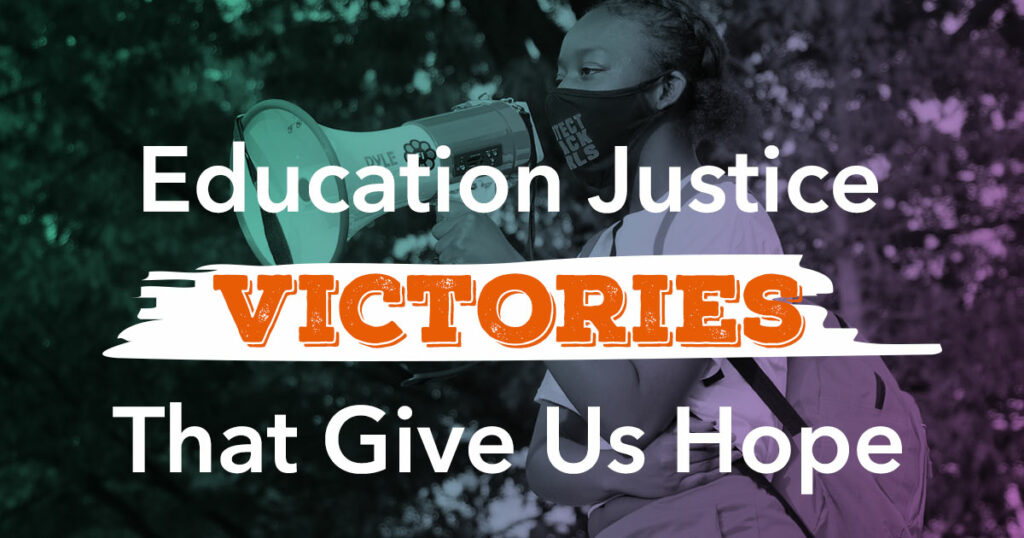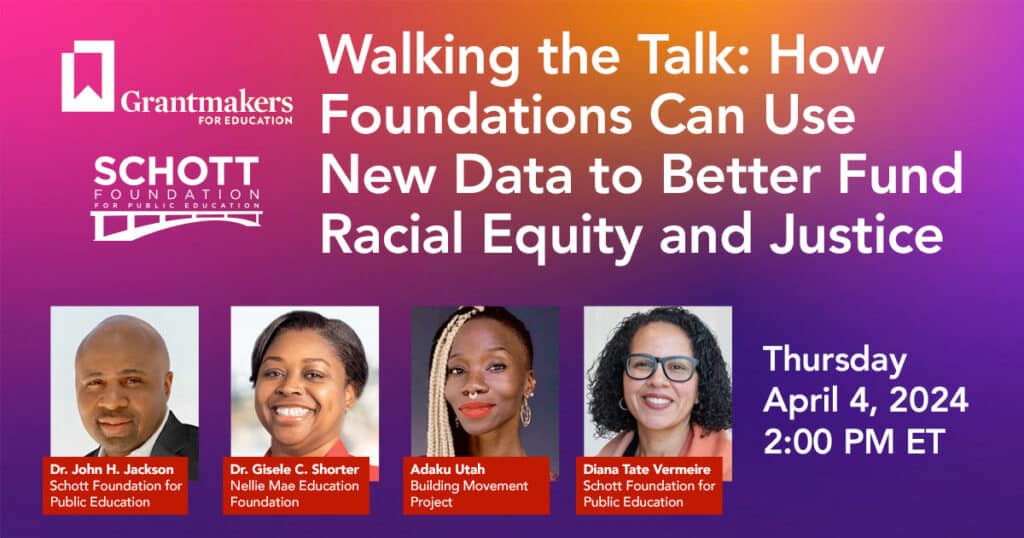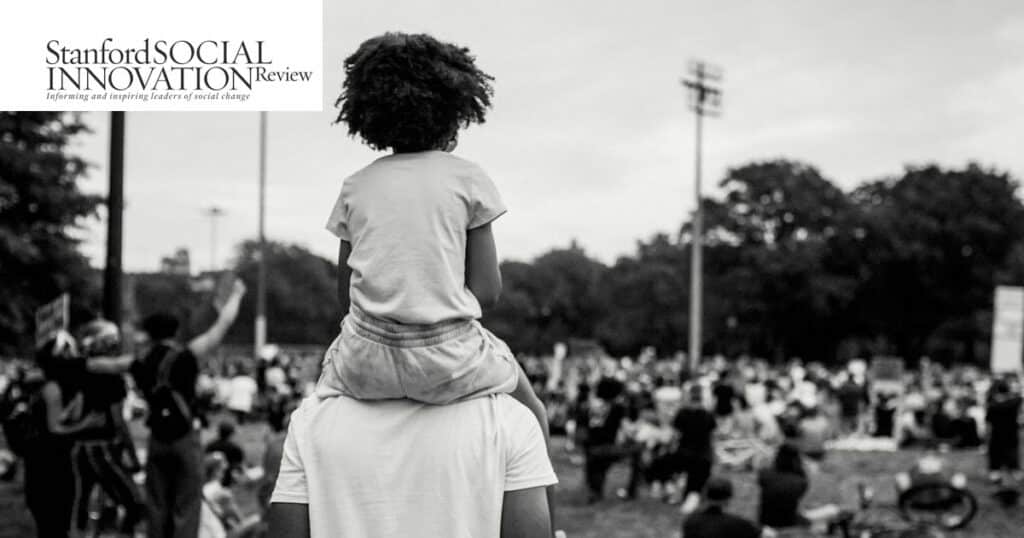Blog
2021 Education Justice Victories that Give us Hope for 2022

2021 was a year of collective healing and reflection. It also came with a series of reactionary setbacks. However, education and racial justice advocates continued to organize across the country. Here are some policy and organizing victories from the past year that give us hope for 2022!

1. Police-Free Schools in Los Angeles
In February, the Los Angeles United School District voted to cut one-third of its school police officers. The vote also banned the use of pepper spray and moved $25 million to student achievement plans for students of color. This was a result of months of organizing with a coalition of several Loving Communities Response Fund partners in Los Angeles and meetings around reimagining public safety in LA schools. Read more about this win here.

2. Billions for Public School Equity in New York
In April, the 2021-2022 New York state budget met a thirty-year demand from Education justice advocates: equitably funding New York State’s public schools so that no matter what zip code a child resides in, there is a baseline of quality of their public schools can afford to meet. Schott grantee partner the Alliance for Quality Education (AQE) has advocated tirelessly, organized, and released a database that documents how much each district in New York is owed. They were a crucial part of this win. You can read more about it here.

3. Parents Organized to Win Culturally Responsive Curriculum in New York
In July, New York City announced that it would spend $202 million on building a more culturally responsive curriculum from the ground up. The comprehensive curriculum, which is slated to be ready for schools to implement by the fall of 2023, is designed to reflect the diversity of the city and will include support materials for English and math. This step came from the diligent parent and student advocacy led by Schott grantee partner, the Coalition for Educational Justice (CEJ). Learn more about CEJ and its work here.

4. Worcester Schools Committee Victory
In April, thanks to grassroots organizing and a lawsuit by a coalition of community groups, the city of Worcester, Massachusetts has agreed to change the way it elects its school committee members. The prior practice diluted the votes of Black and Latino community members. The new system will hopefully create a more equitable system in Worcester. Worcester Interfaith, a Schott Foundation grantee partner, has been a key convener and participant in the organizing and advocacy that led to this victory. Learn more about this victory here.

5. The American Rescue Plan
In March, the Federal government announced billions in funding for State, Local, and Tribal governments. States were required to submit their plans for funding allocation in June and our partners in the education justice movement made their voices heard! Learn more about our partner’s efforts and the push for resources in our communities here.

6. Inequitable School Funding is on Trial in Pennsylvania
In November, a lawsuit seven years in the making holds the possibility of dramatically revamping Pennsylvania’s property tax-driven system of school funding. There is precedent for lawsuits like this across the country resulting in billions of new dollars for schools. Learn more about this lawsuit and the grassroots organizing that led to it here.

7. Louisiana Votes to Include the Sustainable Community Schools Model in Public School Reform
With help from a coalition of organizations, Schott grantee partners Step Up Louisiana and the Alliance to Reclaim our Schools (AROS) were instrumental in the passing of Louisiana State Resolution 133. This resolution will make the Sustainable Community Schools Model a significant part of reforming Louisiana Public Schools. Read more about this win here!

8. Winning—and Protecting—Discipline Reform in Pittsburgh
In June, parents and students of the Education Rights Network, a member of Schott grantee partner the Dignity in Schools Campaign, celebrated a hard-fought victory in Pittsburgh: the city’s school board voted to no longer allow suspensions for non-violent offenses. However, this fall there was a concerted effort to reinstate the policy, which just a few weeks ago failed to pass thanks to the diligence and effort of education justice activists in the community. This shows the importance of funding the grassroots for the long haul, even after victories are won: only organized and mobilized communities can keep victories from being rolled back.


